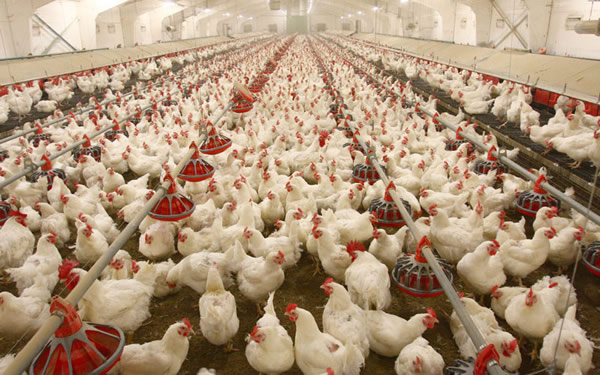The Poultry Association of Nigeria, along with various stakeholders in the poultry sector, has raised alarms over the continual surge in egg prices, prompting calls for government intervention. Eggs, which were once regarded as the most economical source of protein, are increasingly becoming unaffordable for many Nigerians. The situation was described in a series of interviews conducted with key figures in Lagos, highlighting the urgent need for action to address the rising costs that have affected both producers and consumers. The increasing price of eggs poses a major concern, particularly for lower-income households that rely on eggs as a primary source of nourishment.
Mr. Mojeed Iyiola, the Chairman of the Poultry Association of Nigeria, attributed the soaring prices of eggs to the escalating costs of raw materials for bird feed. Despite governmental support initiatives and provisions for importing maize – a crucial ingredient in poultry feed that constitutes around 60 to 65 percent of production – there has been no significant decrease in feed prices. He noted that while maize prices have somewhat stabilized, other essential feed components like soya and methylene remain prohibitively expensive. Prices for a crate of eggs have reached alarming levels, with the farm gate price currently starting at approximately N5,000. This continual price escalation places immense stress on poultry farmers, many of whom are struggling to keep their businesses viable amidst these economic challenges.
Wider economic and infrastructural issues have compounded the problems faced by egg producers and sellers alike. Egg vendors, such as Mrs. Taiwo Bashiru, expressed that they have never experienced such extraordinary hikes in prices over their years of operation. The inconsistency in supply, largely due to fluctuating feed and transportation costs, has heightened concerns within the market. Similarly, Ms. Bummi Olayinka articulated how inflation has adversely affected the poultry industry, with significant increases in both feed and transportation expenses pushing egg prices upward. The overall escalation in production costs has left many in the industry beleaguered and struggling to maintain a steady supply of eggs for consumers.
Consumers have also voiced their frustrations regarding the rising costs of eggs. Mrs. Ajoke Folorunsho highlighted the essential nutritional value of eggs, particularly as a source of protein for families. However, she lamented that the recent price hikes have placed eggs beyond the reach of many households. The increasing costs have made it challenging for families to maintain regular egg consumption, which has dire implications for nutrition within local communities. Another consumer, Mrs. Ifeoma Okoli, further illustrated the struggle many face in accessing protein sources as the prices of meat, fish, beans, and eggs continue to climb. The economic implications are stark, as securing a balanced diet becomes a struggle for those with limited financial means.
Moreover, calls have been made for substantive government intervention in the poultry sector to address these escalating prices. Mrs. Adegbite Samiat, owner of an egg depot, emphasized that governmental support for poultry farmers could facilitate a stabilization of prices. She also pointed out the devastating impact of disease outbreaks on egg production and suggested that government-provided vaccines and medical support would mitigate some of the risks involved in poultry farming. Recognizing that sound veterinary measures could prevent losses, stakeholders are advocating for a more proactive governmental role.
In summary, the ongoing price increases in the poultry sector, particularly regarding eggs, serve as a crucial indicator of broader economic challenges faced by Nigerian households. Both producers and consumers are feeling the weight of escalating costs that affect food affordability and nutritional access. Demand from low-income families is particularly high, yet supply inconsistencies and increased production expenses continue to undermine the market. There is a pressing need for intervention strategies that can stabilize prices, boost production, and ultimately ensure access to this vital source of protein. By addressing issues revolving around feed costs, production infrastructure, and disease management, stakeholders believe that sustainable solutions can be forged to secure the future of the poultry industry in Nigeria.


